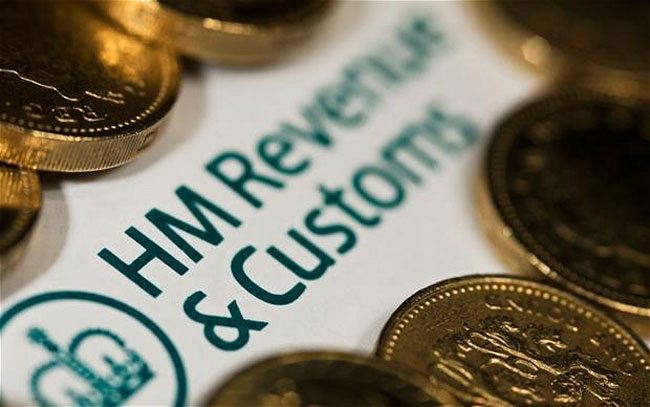HM Revenue & Customs is under increasing pressure from the government to raise more revenue, with the ambitious target of collecting an additional £7bn a year in tax by 2014/15. Inevitably, as HMRC looks for ways to generate more income by closing alleged tax “loopholes”, their gaze will fall on schemes that have been set up to help contractors minimise their tax contributions.
When the mortgage needs to be paid and the cost of living rises, the prospect of taking home as much as 90% of your income is a tempting one – and seems almost too good to be true. Many of the schemes that advertise such tax avoidance do so by using (or abusing, depending on your point of view), offshore trusts known as Employee Benefit Trusts (EBTs). However, HMRC has made it clear that payroll tax avoidance and EBTs are potentially lucrative targets that warrant their attention. This has resulted in HMRC slowly but systematically closing many offshore tax avoidance schemes, leaving contractors to pick up the pieces in unpaid salaries, tax and penalties.
According to the Financial Times, HMRC’s success in this area alone has yielded an estimated £533m in additional taxation in the year to Aril 2013; over double the previous year. As HMRC believes there’s a further £2bn unpaid tax still to be collected, payroll schemes are likely to be under the spotlight for some time – which means that contractors really need to know where they stand.
EBTs explained
Companies that offer contractors guaranteed take home percentages of up to 90% often do so via an EBT, commonly based in offshore tax havens such as Switzerland, the Isle of Man and Gibraltar. Under these schemes, the contractor receives a small basic salary which is subject to UK income tax and national insurance contributions. The majority of their income actually comes in the form of a loan, from which a minimal amount of interest is deducted. The net effect is less deducted from gross pay, with more take-home pay remaining for the contractor. However, as the loan is a benefit in kind, it should be declared on a tax return as income – and in theory, the loan may have to be repaid at some point in the future.
HMRC takes action
HMRC intends to close schemes which are purposely set up to evade taxation, stating that “EBTs have increasingly been used for avoidance purposes, with the aim of providing employees and directors with benefits in ways that aim to defer, minimise or avoid:
- Income Tax (including PAYE) liability on amounts received by employees and directors; and/or
- Employers’ Class 1 or Class 1A National Insurance Contributions (NICs) on amounts paid to employees and directors.”
HMRC see the closure of EBTs as a means of collecting unpaid higher rate tax as the majority of scheme users are believed to be higher rate tax payers. Moreover, if shut down, it is the contractor who is liable, not the scheme provider. This means that the sum of any unpaid taxation will be borne by the contractor, along with interest and penalties. Some EBTs claim to offer legal cover protection from potential investigations, but in practice, the EBT is often closed before a claim can ever be made.
Furthermore, an EBT is complicated to set up and reliant on the compliance of offshore trustees, meaning that the promised benefits cannot be guaranteed. HMRC advocate avoiding EBTs that offer:
- Payment of bonuses via an offshore trust in an attempt to avoid employers’ NICs
- Payment of remuneration by way of loans, which may be written off before they become repayable
- Making loans in depreciating currency from which the borrower may make a foreign exchange gain before the loan becomes repayable
- Allowing employees to use assets (such as cars) owned by the EBT, the costs of acquiring which would be capital expenditure if they were owned by the employing company
- Providing benefits in the form of shares (not in the employing company) whose values can be most easily manipulated before or after they are transferred from the EBT to employees or directors.
A compliant solution
However, there are legitimate and tax effective strategies that contractors can employ to ensure they are maximising their income. At JSA, we anticipate an increased uptake of limited and umbrella company solutions as HMRC close down more and more EBTs. These solutions are fully compliant, offering security and peace of mind – as well as a healthy financial reward.
Ultimately, the best advice is to seek the guidance of an established, qualified and audited company who are members of the Freelancer and Contractor Services Association (FCSA) and regularly audited to ensure compliancy. After all, your livelihood and your peace of mind are too important to put at risk.
The JSA Group is a member of FCSA and is audited every year by EY with the results shared with HMRC. For more information about JSA’s services, visit www.jsagroup.co.uk,
About the author
Ben Dunn joined JSA in 2013 as Finance Director and is a Fellow Chartered Accountant. Since qualifying with Coopers & Lybrand in 1998, Ben has worked solely within the service sector in SMEs, working closely with owner-managers to accelerate the transition from growth to maturity. Ben is responsible for all compliance matters at JSA, working closely with partners and clients to maintain the highest standards in the employment solutions industry.


